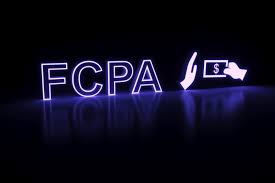DOJ’s Enforcement and Compliance Changes: Weighing the Pros and Cons of Voluntary Disclosures

The Justice Department certainly has altered the landscape of enforcement, compliance priorities, and ultimately corporate decisions surrounding voluntary disclosure. It has become a little bit more complicated to sort out all the carrots and sticks. One thing is clear – DOJ wants more companies to voluntarily disclose misconduct. And that is understandable.
DOJ does not want companies to wait until they receive a grand jury subpoena to start cooperating. To open a grand jury and issue a subpoena, DOJ must have evidence suggesting that a crime has occurred. That requires work and discovery of potential criminal activity. DOJ cannot open a grand jury investigation based on a suspicion or a whim – DOJ acts when they have sufficient credible evidence. Given this hurdle, it is no wonder that DOJ has taken steps to encourage more companies to voluntarily disclose misconduct.
Years ago, companies were more willing to voluntarily disclose misconduct to DOJ. After a while, however, companies (and their counsel) began to question the actual benefits of such disclosures given the lack of certainty of earning benefits.
On the other side of the equation, a different strategy developed – find and fix the wrongdoing internally and then document all the actions taken to remediate the situation and then sit tight. Under this scenario, companies would weigh the risk of detection by DOJ against the avoidance of significant costs, fines and reputational damage that might result from an enforcement action.

In the end, a number of companies decided to avoid the voluntary disclosure path, hoping that the wrongdoing was not discovered and the company resolved the situation internally with a full investigation and robust remediation. Even if the wrongdoing was discovered by DOJ, the company could then fully cooperate after receiving a DOJ grand jury subpoena or other communication. The marginal difference in this situation was the benefit of a voluntary disclosure versus cooperation after detection. This is the essential difference that DOJ’s enforcement policy is seeking to address
DOJ has made a bet by focusing on individual accountability, eliminating a significant bar against benefits for recidivist companies and focusing on measures to reduce burdens on shareholders. It is pushing a new incentive framework by offering more carrots to companies and seeking to reassure companies of tangible benefits for disclosures and cooperation. This refined strategy is untested but may create some interesting decisions by companies when they discover misconduct.
DOJ knows what it wants but has to wait to learn if this new approach works. DOJ leadership has made numerous statements to the business community, including legal and compliance professionals, emphasizing its new policies and procedures. DOJ officials have given speeches explaining how recent enforcement actions have been resolved depending on voluntary disclosure, cooperation and remediation. DOJ has been clear and consistent in its public pronouncements. As always, the proof will be in the results.
The challenge for DOJ is that each enforcement action presents distinct issues – the ABB FCPA case, for example, presented some interesting facts surrounding the issue of voluntary disclosure itself. If you remember, ABB’s counsel contacted DOJ to request a meeting for disclosure purposes. Before the meeting occurred, public reporting announced ABB’s latest bribery scandal. Even though ABB counsel met with DOJ days later, ABB was not awarded voluntary disclosure because the scandal at that time was already known to the government. In recognition of this hyper-technical result, DOJ bent over backwards to reward ABB and they did so despite the fact that ABB was a three-time recidivist.

DOJ’s tinkering with its enforcement policies has been captured and described in numerous articles, speeches and specific reviews of edits and commentaries made to the Justice Manual. DOJ should be commended for making these efforts rather than relying on new policy memoranda or revised policies described in speeches. By adopting written policies, edits and commentaries, DOJ has provided the defense bar (and their own prosecutors) distinct language and guidance for the defense bar to review, advise their clients, and ultimately tailor client advocacy before DOJ.
For now, we will watch DOJ enforcement actions closely for indications of policy applications and confirmation of DOJ’s adherence to new policy pronouncements.















